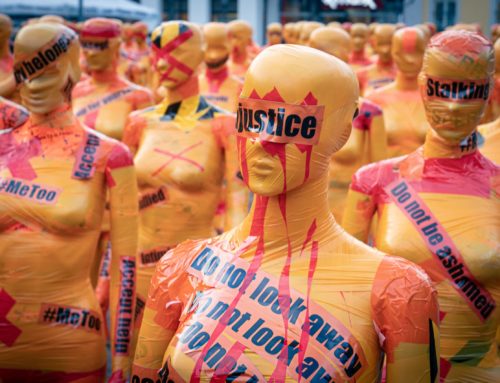U.S. District Judge Rodney Smith varied downward significantly from the recommended guidelines of 108 to 135 months in handing down a 35-month sentence for Armengol Alfonso Cevallos Diaz, 58, who pled guilty in January 2020 to one count of conspiracy to violate the Foreign Corrupt Practices Act and one count of conspiracy to commit money laundering.
As part of the sentence, Cevallos will also have to serve three years of supervised release and has agreed to be deported following his prison term. The judge also imposed a $35,000 fine.
During the hearing in Fort Lauderdale, Judge Smith granted Cevallos’ request for a downward departure based on his minor role in the scheme and said he was avoiding “any unwarranted sentencing disparities” with other individuals convicted in connection with the scheme. The judge also cited the defendant’s lack of criminal history, acceptance of responsibility and cooperation with U.S. authorities, as well as $50,000 Cevallos’ counsel said he is prepared to pay toward a previously entered forfeiture judgment.
“Based on the sentences that were entered in this case in comparison to the other defendants, I think that the sentence of Mr. Cevallos Diaz was reasonable and fair, especially due to his limited involvement in this crime,” Cevallos’ counsel, Ana M. Davide, told Law360 after the hearing. “I think the judge took everything into consideration, saw the sentences that were given to the top officials at PetroEcuador and sentenced the defendant justly.”
Davide and the government presented contrasting descriptions of Cevallos’ importance to the scheme, which involved coordinating bribes paid to former PetroEcuador official Marcelo Reyes Lopez and helping to conceal and launder the funds, including through the purchase of real estate in South Florida, according to case records.
Davide insisted her client’s position was that of a mere “intermediator,” or broker, who gave directions to co-defendant Jose Melquiades Cisneros Alarcón about where to move the money to launder it but did not actually make any of the major decisions.
“In reality, Mr. Cisneros did a lot more of the moving and the shaking here as it relates to the money laundering,” she said.
Davide also contrasted Cevallos’ position with that of Reyes, whom she described as “the boss” of the scheme and said controlled the PetroEcuador contracts tied to the bribes, as well as Jose Luis de la Paz Roman, who paid the bribes to secure contracts for his multibillion-dollar company Nolimit CA.
Davide requested a 30-month sentence for Cevallos, noting that Cisneros was sentenced to 20 months, Reyes to 53 months and de la Paz to 36 months. Another former PetroEcuador official who received bribes got 48 months in related cases, she said.
Prosecutor Jonathan P. Robell countered by requesting at least a nine-year sentence. He said Cevallos had admitted to playing a central role and said he did not need to undertake the actions Cisneros did because he was directing Cisneros.
“This is not just someone who is a financial intermediary. This is someone at the center of the scheme,” Robell argued. “The defendant provided structure and direction for the money laundering scheme.”
He also suggested Davide was attempting to “short circuit” the standard compassionate release process by asking the court prematurely to factor Cevallos’ worsening diabetes into the sentence.
Speaking to the court in Spanish through a translator, Cevallos asked for forgiveness. He described his criminal actions as “a mistake” in a life otherwise devoted to decades of hard work and raising his three daughters, who he said are the most important thing in his life and proudly recounted had become professionals.
“But this mistake that I made has complicated my whole life and now makes me have to go back [to Ecuador],” Cevallos said. “And it puts me in a condition where I won’t be able to enjoy my family, which makes it very uncomfortable, very difficult for me.”
Cevallos was indicted in May 2019 along with Cisneros as part of a broader investigation into a bribery scandal at PetroEcuador, where employees of the state-owned oil company received bribes for steering contracts to Galileo Energy SA, an Ecuadorian company that services the oil and gas industry, and other companies.
Prosecutors said that in 2013, Cisneros and Cevallos created a shell company, O&G International Supplies Inc., in Miami to receive bribe proceeds for Reyes. Cisneros then used the shell company to buy several Miami-area properties for Reyes and another senior PetroEcuador official, according to prosecutors.
In February 2015, Cisneros transferred O&G and its assets over to Reyes, according to the indictment.
The U.S. Department of Justice issued a press release announcing the sentencing, but a representative had no further comment when reached Thursday.
The government is represented by Lorinda Laryea, Jonathan P. Robell and Katherine Raut of the U.S. Department of Justice’s Fraud Section, Mary Ann McCarthy and Randall Warden of the DOJ’s Money Laundering and Asset Recovery Section and Karen Rochlin and Nicole Grosnoff of the U.S. Attorney’s Office for the Southern District of Florida.
Cevallos is represented by Ana M. Davide of the Law Offices of Ana M. Davide.
The case is U.S. v. Cevallos Diaz et al., case number 1:19-cr-20284, in the U.S. District Court for the Southern District of Florida.
–Additional reporting by Carolina Bolado. Editing by Janice Carter Brown.





